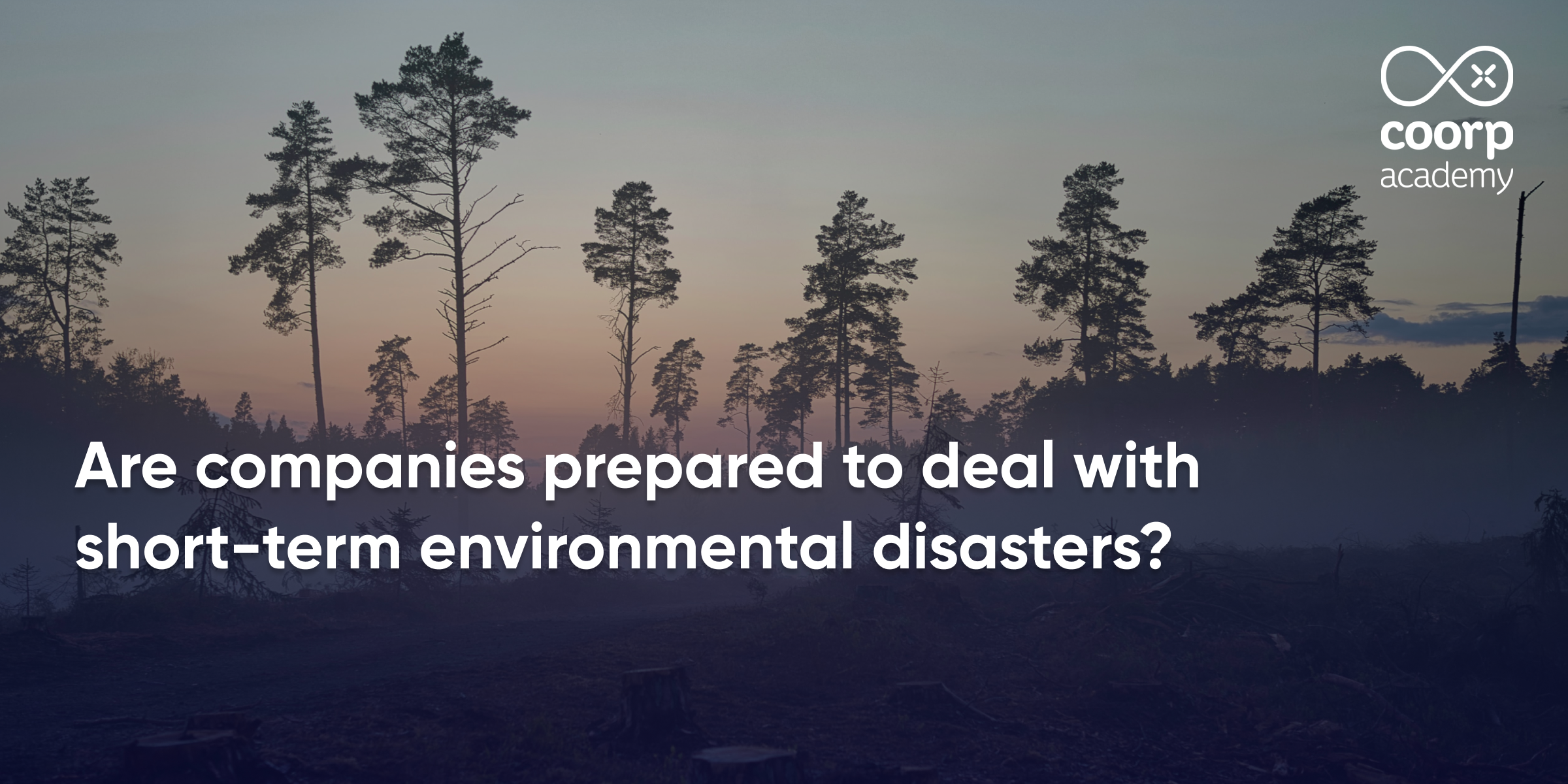Are companies prepared to deal with short-term environmental disasters?
Learning Innovation

On Monday, August 9, the Intergovernmental Panel on Climate Change (IPCC) presented the first of three reports expected by 2022 as part of its sixth climate assessment cycle. This new report presents the current state of knowledge on the climate crisis, its origins, causes and impacts, and on possible actions to respond to the environmental emergency. The findings of this report represent a final warning to individuals, but especially to governments and businesses around the world.
“Life on earth can recover from major climate change by evolving into new species and creating new ecosystems. Humanity cannot.” – IPCC report
The urgency is not new, but it has never been so current.
Established in 1988 at the request of the G7, the 7 richest countries, by the World Meteorological Organization and the United Nations Environment Program, the IPCC synthesizes and assesses research conducted in laboratories around the world. Its fifth report, released in 2014, had already concluded that the human influence on climate systems was clear. But the new report, the sixth since 1990, allows the organization to be even more incisive about the direct link between human activity and current global warming.
If these reports provide essential elements to limit the extent of global warming and the severity of its impacts, it is up to governments, businesses and individuals to collectively organize and take concrete action in the face of the facts highlighted.
What is currently happening in the world, such as the megafires all over the planet from California to the Mediterranean basin or Australia, are the direct consequences of climate change. And as the IPCC report concludes, directly linked to human activity. The consequences exposed by scientists for several years are a strong argument for action, yet this sixth report still has the effect of a bomb. Today, humanity does not have time for a seventh report, we already know the conclusions, but we can contribute to write a few lines, if we act now.
The ecological crisis: a risk for companies
In our model of infinite growth and exploitation of (limited) natural resources, only a radical transformation of our modes of production, consumption and lifestyle can limit the catastrophic consequences for which we are responsible.
“Our current mode of development, based on a linear economy, is not sustainable.” – Célestine Julien, Inter-Company Pathway Manager (GR20²°) at MySezame – In what world do we want to live in 30 years?
In business, environmental risk refers to the possibility of an accident occurring in a company, which would have harmful repercussions – direct or indirect – on the environment, people, company employees and the company’s objectives and reputation. Today, not only is this environmental risk unavoidable, but it also impacts the environment in which the company operates, i.e. the external factors that influence the proper functioning of a company, such as political, environmental, societal and economic aspects. The company’s strategy must then identify the climate emergency and evaluate how it impacts and threatens its activity. If the ecological transition is so necessary, it is because companies will not be able to exist in a world that is disappearing, or at least will not be able to survive if they do not accelerate their adaptation to climate change, the consequences of which we are already seeing.
The IPCC report is clear. If global warming is limited to +2.0°C instead of +1.5°C, sea levels will rise by +30cm to +93cm, impacting more than 10 million people and the number of people affected by drought will increase by +410 million. Through these impacts, climate change is already influencing migration worldwide, and the United Nations predicts 200 million climate refugees by 2050. The impact of the migration crisis on the political and economic environment is obvious.
And internal consequences
Our modes of production are not sustainable. If the resources on which we depend are finite, it is not a shortage that we will face, but an impossibility to produce at all. Already following the pandemic, traders and businesses have faced a major shortage of raw materials, as in Canada where accumulated droughts and heavy rains have caused a drop in production and a rise in wheat prices. But in a few years, shortages may prove much more difficult to overcome. Reduced production, higher raw material prices, loss of personnel, the consequences of the ecological crisis on the production cycle is a risk that companies cannot ignore.
Beyond the political, economic and logistical aspects, the ecological crisis also impacts a resource that is essential to business: people. On a personal level, we are all witnesses to this catastrophe, and we can sometimes feel even more helpless in the face of the emergency. Of course, we can each participate in the collective effort, but we are also aware that the emergency requires a radical and global change in our society. Thus, the anxious and cataclysmic environment in which we evolve every day with a feeling of powerlessness, has an impact on our personal well-being – not to say our mental health. In addition, the expectations of employees – and particularly of the new generations – have changed. To flourish, their work must have meaning and their values must be in line with those of the company.
The world as we know it today will no longer exist in a few years. To keep existing, companies will have to reinvent themselves, adapt and train in order to avoid the risks they face. If the ecological crisis has direct impacts on the company’s environment, it also has indirect consequences on its internal functioning. The strategy must therefore be aligned with this new reality, and the entire organization must adapt in order to anticipate certain now inevitable repercussions on their activities and businesses.
Because the problem is complex, the solutions will be in essence innovative. To act now, discover Coorpecology, the first training platform dedicated to the ecological transition. To quickly train all employees and give them the keys to build a viable future. Sustainable transformation can’t wait any longer, click here to learn more.


